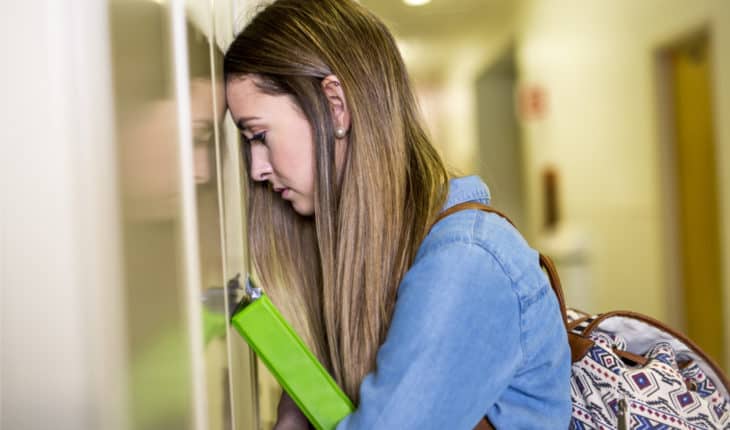Whilst the global pandemic has affected everyone in different ways, the last two school years have been particularly difficult for teenage mental health, reveals new research from Bupa UK.
From online learning, to missing months of school, in addition to reduced social interaction, pandemic-related lifestyle changes have wreaked havoc on teens’ lives. Now as they return for the new school year, anxiety of what the future holds is being felt by teens and parents across the country.
41% of parents are worried about how their child will cope as things return to normal, after months of having adapt to wearing masks and being in a bubble with their class, with half believing that the second lockdown has had even more of a negative impact on their child’s mental health.
Last year, 44% of teenagers reported suffering with anxiety since lockdown began in March 2020 with 30% reporting that this was completely new mental health condition that they had never experienced before. 45% are also worried about their current mental health. Pablo Vandenabeele, Clinical Director of Mental Health at Bupa UK said: “Being a teenager can be a really challenging time under ‘normal’ circumstances. When you compound that experience with the pandemic and its associated uncertainty, it’s a perfect storm for teenage mental health –they are facing challenges that no other generations have had to.
“While returning to school may initially seem exciting, one week on and the anxiety of what the school year ahead is starting to creep in for both parents and teens.” The research also shows that 77% of parents are worried about their child’s future prospects as a result of the pandemic. However, in a meaningful step-change in attitudes to mental health partly brought about by COVID-19, two thirds (62%) now prioritise health over academic attainment for their children, and the same number (65%) prioritise happiness over doing well at school.
Pablo Vandenabeele adds: “Whilst parents may be worried about their child’s future prospects as a result of the pandemic, it’s really promising to see they are prioritising their health and happiness. This focus on their child’s wellbeing lays the groundwork to have open conversations with their kids about mental health in the future.”
To help with this, Pablo Vandenabeele outlines his advice to parents to help support their teenager’s mental health:
Start a conversation – Communication is the key to supporting mental health and while these conversations may be tricky, having a short conversation is better than no conversation. Teens don’t necessarily understand the importance of speaking about their feelings yet, so it’s vital that parents take the lead. Start by asking how they are as this will lead the conversation.
Remember you can’t immediately solve the problem – As a parent, it is a natural instinct to want to be able to be able to ‘solve’ the problem straight away. However, this isn’t always possible, so start off by simply acknowledging how your child is feeling. This can be as simple as saying “I’m really sorry you don’t feel so good at the moment”. It shows your teen that you care and are considering next steps to take.
Understand – As upsetting as it is to hear that your child is struggling with their mental health, try to remain calm. If you get emotional or agitated this may cause them to become nervous and stop them feeling comfortable opening up to you. Explain that you’re there for them and will listen without judgement.
Dispel any myths and normalise mental health – There is still a stigma around mental health and teens may worry about what you/others will think if they open up. Explain that it is like other medical illnesses and help is available to make them feel better. Reinforce that it is good to talk about how they’re feeling.
Help them access further support – It’s likely your teen may need some further support with their mental health. Discuss with them whether they’d like to see their GP or perhaps a counsellor at school and say you’ll be there to attend the appointment if they’d like you to. This way they know they have your support. For further support and advice, you can download the Teen Minds: Living through the pandemic and beyond report or visit Bupa’s teen mental wellbeing page.
- New lipid-based pathway discovered as key to memory formation - 25th June 2025
- Crucial link could explain how Alzheimer’s takes hold - 25th June 2025
- Understanding Your Mind Can Improve Daily Life - 25th June 2025







